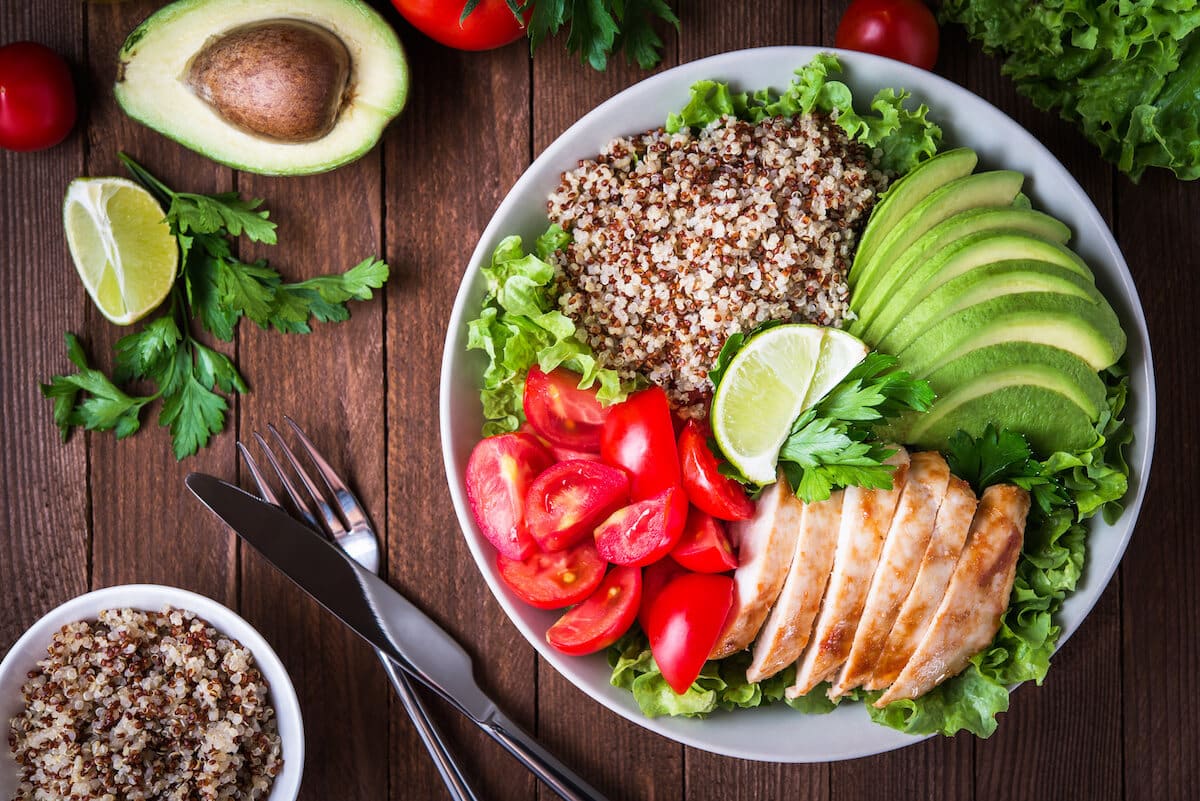
16 Jan Choosing the Best Protein Powder for Sensitive Stomachs
Many athletes and bodybuilders use protein powder as part of their daily health regime — and some suffer the consequences for hours afterward. Luckily, that’s no longer necessary. When you know the best protein powder for sensitive stomachs, you can enjoy the benefits of getting that extra protein boost without discomfort.
Let’s review why protein is so important and find out why some protein powders cause digestive issues. We’ll also look at the best protein powders for sensitive stomachs so you can get the nutrition you need without worrying about any negative side effects.
What Is a Sensitive Stomach?

If you have a sensitive stomach, you’ll know all about it. After eating certain foods, you may experience any of these symptoms:
- Upset stomach
- Constipation
- Bloating
- Gas
- Nausea
- Stomach cramps
One of the main reasons many protein supplements have this effect is that they contain lactose. So, if you’re even slightly lactose intolerant, that protein shake could cause anything from mild to extreme discomfort.
However, your body can’t function without enough protein, especially if you regularly take part in intensive exercise.
Why You Need Protein
Protein is one of the three macronutrients your body needs — the other two are carbohydrates and healthy fats. Protein is a critical component of your structural framework and tissues, including your skeletal system, organs, and muscles. It’s also involved in many other important bodily functions, like keeping your immune system strong and producing enzymes, hormones, neurotransmitters, and hemoglobin.
While everyone needs protein to stay healthy, it’s particularly beloved by athletes and bodybuilders because it helps to build muscle mass and strength when combined with resistance exercise. It also helps with weight loss and can boost energy, especially when restricting carbs and fats.
Where to Get Protein

A healthy diet should always start with whole foods. Complete protein sources like beef, chicken, fish, dairy, and eggs work well for most people, while vegetarians can eat high-protein plant foods like legumes, quinoa, chia seeds, and oats.
When you eat protein, your digestive system breaks down the peptides (chains of amino acids) into their component essential amino acids. These are the critical building blocks of muscle — especially the branched-chain amino acids (BCAAs).
The amount of protein people need varies depending on age, general health, and activity level. The average, moderately active person needs 0.8 grams of protein per kilogram of body weight, but athletes need a lot more.
Eating enough whole foods to get that much dietary protein over a day can be challenging, so many athletes turn to protein powder to supplement their protein intake. This strategy works perfectly for some people, but if you have digestive issues, you may suffer uncomfortable side effects. That’s where the best protein powder for sensitive stomachs comes in.
Best Protein Powder for Sensitive Stomachs
If you search Amazon or the shelves of your local retail store, you’ll find many different types of protein powder on the market. Made from different protein sources, it comes in variations from vanilla flavor to strawberry, peanut butter, chocolate, or mocha to suit pretty much anyone’s taste.
Of these options, some of the best protein powders for sensitive stomachs are whey protein and pea protein.
Animal-Based Protein Powder: Whey Protein
Some popular types of animal-based protein powder include egg white, collagen, casein, and whey protein.
Whey protein has several variants, including whey protein concentrate and whey protein isolate. Both are based on milk protein, but whey protein isolate is usually much higher in protein and very low in calories. It has less than 1% lactose content and, therefore, very seldom triggers lactose-intolerance reactions, making it one of the best protein powders for sensitive stomachs.
Ingredient Optimized ioWhey Protein has been proven to be far more bioavailable than non-optimized protein powders. That’s because our Plasma Technology enhances the protein structure so the body’s digestive enzymes can work more effectively, increasing amino acid absorption and reducing stomach discomfort. ioWhey protein powder is also USDA-certified certified organic.
Vegan Protein Powder: Pea Protein
For those who prefer a more plant-based diet, an alternative to whey protein is pea protein. By their very nature, plant proteins are dairy-free, which means there’s no chance that your lactose intolerance will kick in.
Popular plant-based protein powders include brown rice protein, hemp protein, soy protein, and pea protein — and many vegan protein supplements contain a combination of two or more of these. It’s always a good idea to check the ingredients list to see exactly what’s in it.
Most plant-based protein powders aren’t as effective as animal-based protein powders, but there’s a stand-out exception: Ingredient Optimized ioPea Protein. ioPea is nearly three times more bioavailable than non-optimized pea protein and has been proven to be as effective as whey protein powder. It’s also very gentle on the digestive system, which makes it one of the best protein powders for sensitive stomachs.
Now, these already high-quality protein powder supplements have been taken to the next level. Enter Genepro Gen3 Protein Powder, which contains either ioWhey or ioPea, depending on the variant.
Benefits of Genepro Gen3 Unflavored Protein Powder

Genepro Gen3 is also one of the best protein powders for sensitive stomachs because it’s lactose-free, gluten-free, soy-free, and non-GMO. It contains no fillers or added sugar and no carbs. It’s also free of all artificial ingredients or additives, so there are no artificial flavors or artificial sweeteners — which can also trigger sensitive stomachs.
Genepro Gen3’s easily digestible and doesn’t cause any of the usual symptoms of digestive distress. You can opt for the product with anti-inflammatory ImmunoLin, which supports digestive health, boosts your immune system, and actively removes bacterial toxins from your gastrointestinal tract, helping to restore your gut barrier.
Genepro Gen3 products are low-calorie and suitable for a keto and paleo diet. Best of all, they have a 99.99% absorption rate, which means you get all that protein power with zero waste.
Because Genepro Gen3 is unflavored and has no nasty aftertaste, you can mix it into your smoothies or protein shakes — pre-or post-workout, or as a meal replacement. Add it to other favorite drinks, like juice or coffee, or foods like cereals, stews, or baked goods.
Reduce Digestive Discomfort With Protein Powder for Sensitive Stomachs
Your body needs plenty of protein for your daily activities, especially if you’re involved in a high-intensity exercise program. While whole foods are excellent sources of protein, it can be difficult to get enough protein from them. Supplementing with protein powder can help to bridge this gap.
However, many protein powders can cause digestive issues if you have a sensitive stomach. To avoid this, choose a highly bioavailable whey or pea protein supplement that contains Ingredient Optimized protein powder. And thanks to a collaboration with Genepro, you get all the results you’re looking for without any unwanted side effects. With Genepro Gen3, getting the nutrition you need for your high-intensity training has never been easier or more effective.


